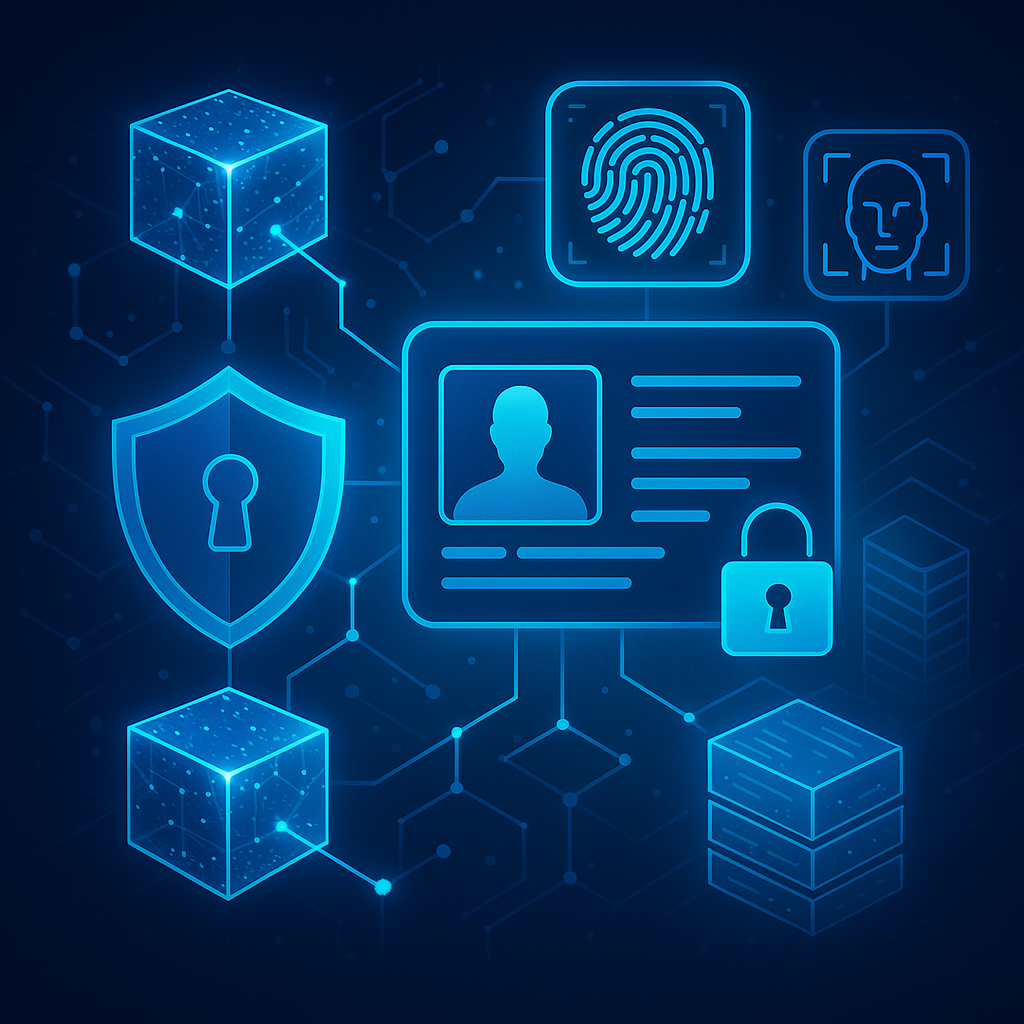Blockchain and Identity Verification: A New Era of Digital Security
In our digital age protecting personal data matters more than ever. Old-school identity checks depend on central databases leaving them open to hacking and data breaches. Blockchain tech brings a game-changing answer offering a safe spread-out way to verify identities. But how does this system operate, and why will it shape the future of digital identity? Let’s explore.
🔗 What is Blockchain Technology?
Blockchain serves as a shared digital record that tracks dealings across a computer network. Rather than keeping all info in one spot, it spreads data out making it tougher to mess with or break into.
Key Features of Blockchain for Identity Verification:
✅ Decentralization – Data control doesn’t rest with a single entity lowering breach risks. ✅ Immutability – Data stays unchanged once recorded ensuring accuracy. ✅ Transparency – Authorized participants can see transactions building trust.
🔐 How Blockchain Boosts Identity Verification
1️⃣ Better Security
Central databases in traditional identity systems hold sensitive data attracting hackers. Blockchain removes this risk by spreading data across many nodes avoiding a single failure point.
2️⃣ User-Controlled Identity
With blockchain, people have control over their digital identity. They can choose what details to reveal and to whom, cutting down on needless data sharing and boosting privacy.
3️⃣ Precise and Cheat-Proof Checks
Blockchain ties each identity to a one-of-a-kind digital mark making it almost impossible for scammers to pose as someone else. The unchangeable nature of blockchain records ensures that once data gets checked, nobody can alter it.
🏦 Real-Life Uses of Blockchain in ID Checks
💳 Money Matters (Banking & KYC)
Banks can use blockchain to speed up “Know Your Customer” (KYC) steps checking identities while cutting down on setup time.
🏥 Healthcare
Blockchain has an impact on securing patient identities and medical records. It makes sure authorized staff can access them. This guards sensitive health information and boosts patient safety.
🏛 Government Services
Governments can apply blockchain-based digital IDs to vote, file taxes, and provide social services. This cuts down on identity theft and ensures the right people get benefits.
🛍 Online Platforms & E-Commerce
Blockchain allows for safe logins and transactions. This lowers fraud in e-commerce social media, and other online services.
⚠️ Challenges of Blockchain in Identity Verification
Even with its promise, blockchain-based identity verification faces some obstacles:
🔹 Meeting Regulations – Solutions have to follow data protection rules like GDPR. 🔹 Working with Current Systems – Companies need time and money to start using blockchain. 🔹 Getting Users on Board – People need to believe in and get blockchain technology for it to catch on.
